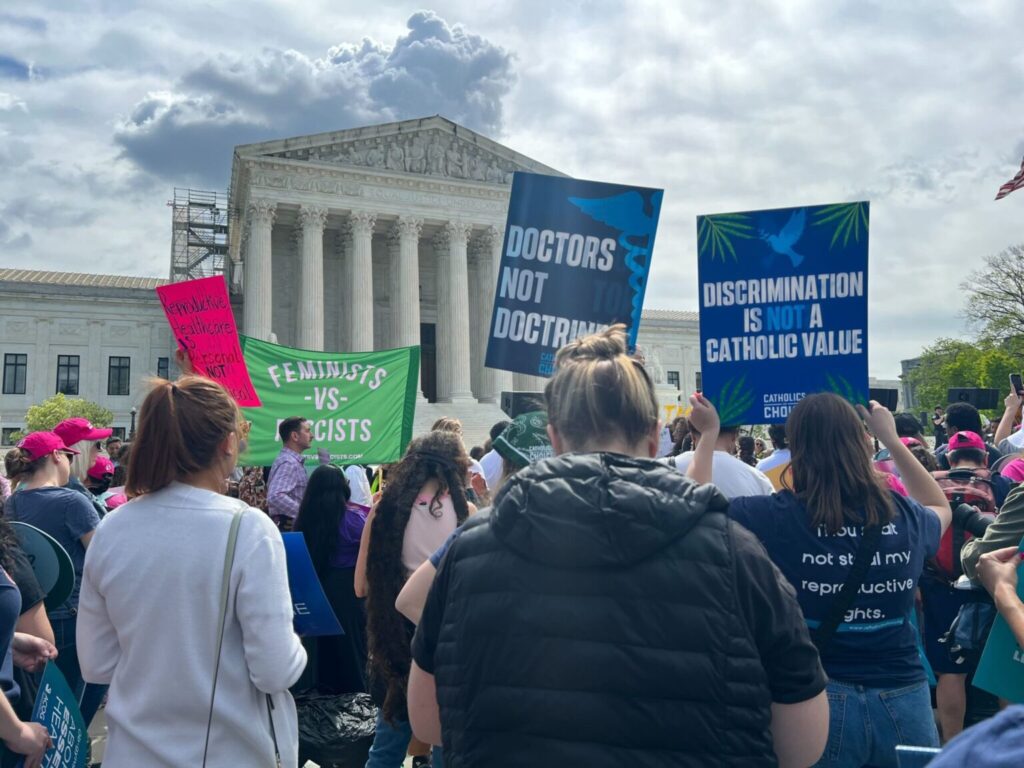WASHINGTON — Doctors from throughout the country posted a public letter this week, urging the U.S. Supreme Court to ensure health care professionals can perform abortions in every state when that procedure is essential “stabilizing treatment” under the Emergency Medical Treatment and Active Labor Act.
Thousands of doctors, organized by the advocacy group The Committee to Protect Health Care, signed the letter that calls on the justices to decide in favor of the Biden administration’s interpretation that the law protects doctors who provide abortions in emergency circumstances.
“We know firsthand how complications from pregnancy can lead very quickly to a medical crisis, requiring immediate care and treatment,” the letter states.
“These patients’ complications can range from a miscarriage to heavy bleeding, from placental abruption to a stroke from severe preeclampsia — and doctors and health professionals in emergency departments must be allowed to use the full range of medical options to save these patients’ lives, including abortion,” the doctors wrote.
The Committee to Protect Health Care writes on its website that through “earned and paid media, grassroots advocacy campaigns, and other tools, we help pass policies that expand health care and abortion access, elect health care champions, and hold anti-health care politicians accountable.”
A letter is not the official way for experts or interested parties to weigh in with the justices when they are considering a case.
Typically, individuals or organizations file an amicus curiae, or friend of the court, brief before oral arguments. The publication of the letter, however, comes a full month after that took place in this case and likely after the majority has begun writing the ruling.
The Committee to Protect Health Care confirmed Friday the group didn’t file an amicus brief.
The Supreme Court heard oral arguments in the case, Idaho v. United States, on April 24. The justices are expected to release their ruling before the Fourth of July break.
Defining ’emergency’
The case centers around whether a federal law, known as the Emergency Medical Treatment and Active Labor Act or EMTALA, protects doctors and other healthcare professionals who provide abortions as “stabilizing treatment” during a medical emergency, even when those doctors’ actions might go against state bans or restrictions.
The case in front of the Supreme Court, in part, stems from the Biden administration’s interpretation of the 1986 law.
That law requires emergency departments to either provide stabilizing care or transfer a patient with an emergency medical condition, regardless of their insurance status.
U.S. Health and Human Services Secretary Xavier Becerra announced in July 2022 that under EMTALA “no matter where you live, women have the right to emergency care — including abortion care.”
“Today, in no uncertain terms, we are reinforcing that we expect providers to continue offering these services, and that federal law preempts state abortion bans when needed for emergency care,” Becerra wrote in a statement. “Protecting both patients and providers is a top priority, particularly in this moment.”
The announcement came shortly after the Supreme Court overturned the nationwide, constitutional right to an abortion that was established in the 1973 Roe v. Wade ruling and the 1992 Planned Parenthood v. Casey decision.
Georgia Recorder is part of States Newsroom, a nonprofit news network supported by grants and a coalition of donors as a 501c(3) public charity.

